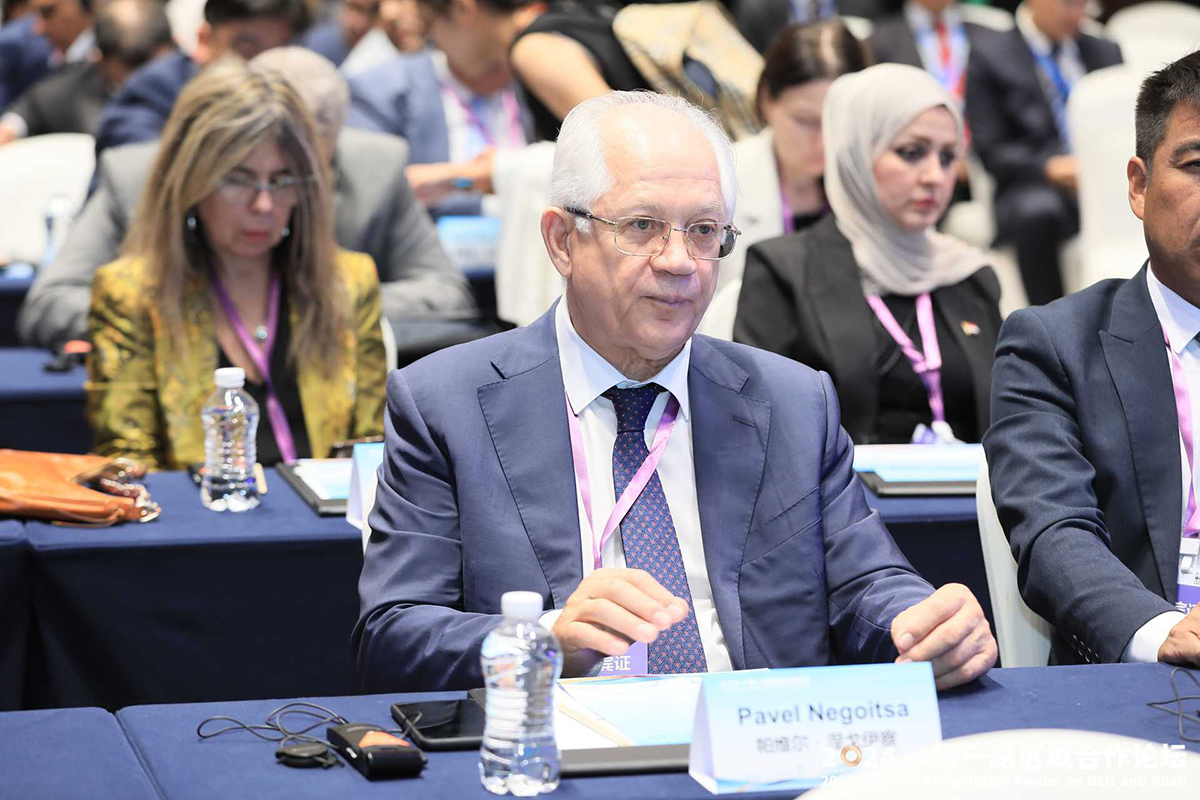Negoitsa: we are alarmed to see how language of facts in media space is changing into language of opinions and impressions
The main task of the media is to inform people about important events for society in the language of verified facts, but, in recent years, we have been anxiously observing how the language of facts is changing into the language of opinions and impressions – as stated by Pavel Negoitsa, the Director General of FSBI Editorial Office of Rossiyskaya Gazeta, at 2024 Media Co-operation Forum on Belt and Road in Chengdu, China
 Photo by People's Daily
Photo by People's Daily
“The information and communication revolution at the turn of the century greatly contributed to the fact that the production and spread of impressions – I am speaking about impressions! — have become the most popular and profitable activity. The picture of events not simply breaks away from the events, but becomes even more important than them: the picture is to constantly affect emotions. A significantly shortened memory of the audience also contributes to the trend: an unstoppable set of newsbreaks seems to erase yesterday's events and news stories from people's memory – not to mention the events that occurred the day before yesterday. In turn, news stories are often intentionally based on information that in no way meets the reality,” the Russian media expert noted in his speech.
According to Mr. Negoitsa, it is now the time when modern technologies allow almost anyone to become a source of information – doing this also anonymously, hiding an identity.
“The heads and authors of legally officially registered media outlets are still personally responsible to readers for their materials, for verifying the facts they are based on. In turn, anonymous Internet sources are, as a rule, not burdened with such responsibility. As a result, we are participating in an unequal battle against fakes. Some launch the latter for fun, but there are also those who are using them to foment hybrid wars, inspire separatism, make people and even nations enemies to each other. It seems to me all this should encourage all of us to take even greater professional responsibility to readers, viewers, listeners, and society as a whole," the Director General of FSBI Editorial Office of Rossiyskaya Gazeta stated.
Mr. Negoitsa added, “As providers of important and reliable information, we are more than ever obliged to protect people – who are inquisitive and trusting by nature – from professional media manipulators who are ready to lie endlessly, raise the degree of hatred and hostility in our societies, pursuing their own benefit. Maybe it's time for all of us to tell ourselves that the norms of morality in the media space are often terribly far from historical and social values, that the information noise created by modern media often obscures rather than clarifies the connections and causes of events and phenomena – which leads to people’s destructive behaviour in society.”
Mr. Negoitsa is convinced that professional anxieties of conscientious media representatives can be reduced if new ways are found to better study the audience for which the media work and which shares a responsible attitude to quality work in the media environment. A wide exchange of experience, as well as international meetings and discussions, including the current Media Co-operation Forum on Belt and Road, can also positively contribute to the process.



